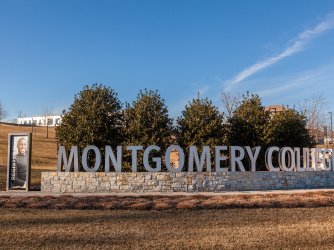Table of Contents
Mountain of evidence shows the Department of Education’s prior approach to campus sexual assault was ‘widely criticized’ and ‘failing’

On Oct. 12, six Democratic senators wrote U.S. Secretary of Education Betsy DeVos to ask her to delay proposed Education Department regulations governing Title IX.
The letter asked Secretary DeVos a series of questions, including two that were particularly relevant to FIRE. First they asked for “a list of all organizations, advocates, and experts that have been consulted in the process of developing [a notice of proposed rulemaking] thus far.” They also requested that the Secretary “provide the analysis behind the Department’s determination that the former Title IX guidance was ‘widely criticized’ and a ‘failed system.’”
Because FIRE was one of the organizations that provided input to the Department and because we value transparency, we sent the Senators a letter to emphasize that the input we provided the current administration was consistent with the input we provided the Department during the Obama administration, and was the same input we have repeatedly provided to Congress and the public.
In order to keep the letter to a manageable length, though, we did not seek to set forth the extensive evidence behind the Department’s assessment that the prior approach was “widely criticized” and “failing.” It is important, however, to demonstrate the magnitude of that evidence for the public record. So here, in longer form, we are posting the evidentiary support for our statement to the Senate Democrats that our “concerns about the erosion of procedural protections have been subsequently echoed by a diverse range of widely respected organizations, individuals, legal scholars … and an increasing number of state and federal courts.”
Specifically, here is just a small sample of materials that highlight the shortcomings of the prior approach, showing it was “widely criticized”:
- Shikha Dalmia, Betsy DeVos is absolutely right about campus sexual assault rules, The Week (Sept. 13, 2018).
- Alice B. Lloyd, Can New Guidelines Restore Due Process on College Campuses?, The Weekly Standard (Aug. 31, 2018).
- Lauretta Brown, Megyn Kelly: Obama-Era Rules on Sexual Assault Complaints Eroded Due Process Rights on Campuses, Townhall (Aug. 31, 2018).
- Rich Lowry, Fixing the Kangaroo Courts, National Review (Aug. 31, 2018).
- Robby Soave, Betsy DeVos Plans to Overhaul Title IX, Focus on Due Process for Accusers and the Accused, Reason (Aug. 28, 2018).
- Stuart Taylor & KC Johnson, End the Bias in Campus Sexual-Misconduct Tribunals, Real Clear Politics (Feb. 2, 2018).
- Ben Trachtenberg, How University Title IX Enforcement and Other Discipline Processes (Probably) Discriminate Against Minority Students, Nevada Law Journal (Jan. 19, 2018).
- Lara Bazelon, DeVos Has Rescinded College Sexual Assault Guidelines. What Now?, The American Prospect (Oct. 10, 2017).
- The Trump administration’s approach to rape on campus is welcome, The Economist (Sept. 14, 2017).
- Ross Douthat, Liberalism and The Campus Rape Tribunals, The New York Times (Sept, 13, 2017).
- Justin Dillon & Matt Kaiser, Lawyers: DeVos is bringing due process to campus sexual assault cases, The Washington Post (Sept. 11, 2017).
- Mark Joseph Stern, One Cheer for Betsy DeVos, Slate (Sept. 11, 2017).
- Cathy Young, Betsy DeVos is right about campus sexual assault, CNN (Sept. 11, 2017).
- Jeannie Suk Gersen, Betsy DeVos, Title IX, and the “Both Sides” Approach to Sexual Assault, The New Yorker (Sept. 8, 2017).
- The Washington Post Editorial Board, Betsy DeVos’s remarks on campus sex assault were right on target, The Washington Post (Sept. 8, 2017).
- Christina Hoff Sommers, Protecting Due Process in Sexual-Assault Cases on Campus, The Chronicle of Higher Education (Sept. 8, 2017).
- Emily Yoffe, The Uncomfortable Truth about Campus Rape Policy, The Atlantic (Sept. 6, 2017).
- Elizabeth Bartholet, Nancy Gertner, Janet Halley & Jeannie Suk Gersen, Fairness For All Students Under Title IX (Aug. 21, 2017).
- John Villasenor & Lara Bazelon, Colleges Should Change How They Handle Sexual Assault, The Washington Post (July 27, 2017).
- American College of Trial Lawyers White Paper on Campus Sexual Assault Investigations, (March 2017).
- KC Johnson & Stuart Taylor, The Dangers of Gutting Due Process in Campus Sexual Assault Cases, The Washington Post (Jan. 30, 2017).
- Tamara Rice Lave, Campus Sexual Assault Adjudication: Why Universities Should Reject the Dear Colleague Letter, Kansas Law Review (July 6, 2016).
- Conor Friedersdorf, How Sexual-Harassment Policies Are Diminishing Academic Freedom, The Atlantic (Oct. 20, 2015).
- Open Letter from Penn Law Faculty, Philadelphia Inquirer (Feb. 18, 2015).
- Janet Halley, Trading the Megaphone for the Gavel in Title IX Enforcement, Harvard Law Review (Feb. 18, 2015).
- Nancy Gertner, Sex, Lies and Justice, The American Prospect (Jan. 12, 2015).
- Peter Berkowitz, The Demise of Due Process on Campus, Real Clear Politics (Dec. 26, 2014).
- 28 members of Harvard Law Faculty, Rethink Harvard’s sexual harassment policy, Boston Globe (Oct. 15, 2014).
- Judith Shulevitz, Accused College Rapists Have Rights, Too, The New Republic (Oct. 11, 2014).
- Anna Green & Donna Plotts, AAUP Committee on Women in the Profession’s Letter, (June 6, 2013).
- Gwendolyn Bradley, Sexual Harassment Guidelines, AAUP (Nov.–Dec. 2011).
Similarly, since 2011, approximately 117 federal courts, as well as a number of state courts, have raised concerns about the lack of meaningful procedural protections in campus adjudications. A number of those judges have put their concerns in particularly clear terms:
- Doe v. Regents of the University of California, No. B283229 (Cal. Ct. App. Oct. 9, 2018) (“It is ironic that an institution of higher learning, where American history and government are taught, should stray so far from the principles that underlie our democracy.”).
- Lee v. University of New Mexico, No. 17-cv-01230 (D.N.M. Sept. 20, 2018) (“[P]reponderance of the evidence is not the proper standard for disciplinary investigations such as the one that led to Lee’s expulsion, given the significant consequences of having a permanent notation such as the one UNM placed on Lee’s transcript.”).
- Doe v. Baum, 903 F.3d 575 (6th Cir. 2018) (“[I]f a public university has to choose between competing narratives to resolve a case, the university must give the accused student or his agent an opportunity to cross-examine the accuser and adverse witnesses in the presence of a neutral fact-finder.”).
- Doe v. University of Michigan, 325 F. Supp. 3d 821 (E.D. Mich. 2018) (“Without a live proceeding, the risk of an erroneous deprivation of Plaintiff’s interest in his reputation, education, and employment is significant.”).
- Doe v. Trustees of Boston College, 892 F.3d 67 (1st Cir. 2018) (holding that it is “reasonable for a student to expect that a basic fairness guarantee excludes having an associate Dean of Students request Board members to give special treatment to the prime alternative culprit in a case in which the key defense is that someone other than the accused student committed the alleged sexual assault”).
- Doe v. Marymount University, 297 F. Supp. 3d 573 (E.D. Va. 2018) (“[C]olleges and universities should treat sexual assault investigations and adjudications with a degree of caution commensurate with the serious consequences that accompany an adjudication of guilt in a sexual assault case. If colleges and university do not treat sexual assault investigations and adjudications with the seriousness they deserve, the institutions may well run afoul of Title IX.”).
- Doe v. University of Notre Dame, 2017 U.S. Dist. LEXIS 69645 (N.D. Ind. May 8, 2017) (in response to university’s argument that lawyers were not required because its disciplinary process was educational, not punitive, judge wrote: “This testimony is not credible. Being thrown out of school, not being permitted to graduate and forfeiting a semester’s worth of tuition is ‘punishment’ in any reasonable sense of that term.”).
- Doe v. Brandeis University, 177 F. Supp. 3d 561 (D. Mass. 2016) (“Brandeis appears to have substantially impaired, if not eliminated, an accused student’s right to a fair and impartial process. … If a college student is to be marked for life as a sexual predator, it is reasonable to require that he be provided a fair opportunity to defend himself and an impartial arbiter to make that decision.”).
- Doe v. Columbia University, 831 F.3d 46 (2d Cir. 2016) (“A covered university that adopts, even temporarily, a policy of bias favoring one sex over the other in a disciplinary dispute, doing so in order to avoid liability or bad publicity, has practiced sex discrimination … .”).
- See also Doe v. Miami Univ., 882 F.3d 579 (6th Cir. 2018); Doe v. Univ. of Cincinnati, 872 F.3d 393 (6th Cir. 2017); Doe v. Columbia Univ., 831 F.3d 46 (2d Cir. 2016); Rossley v. Drake Univ., No. 4:16-cv-00623 (S.D. Iowa Oct. 12, 2018); Doe v. Univ. of So. Miss., No. 2:18-cv-00153 (S.D. Miss. Sept. 26, 2018); Doe v. Syracuse Univ., 2018 U.S. Dist. LEXIS 157586 (N.D.N.Y. Sept. 16, 2018); Doe v. Brown Univ., 2018 U.S. Dist. LEXIS 144967 (D.R.I. Aug. 27, 2018); Doe v. Pa. St. Univ., 2018 U.S. Dist. LEXIS 141423 (M.D. Pa. Aug. 21, 2018); Doe v. Geo. Wash. Univ., 2018 U.S. Dist. LEXIS 136882 (D.D.C. Aug. 14, 2018); Rowles v. Curators of the Univ. of Miss., No. 2:17-cv-04250 (W.D. Mo. July 16, 2018); Doe v. Univ. of Miss., 2018 U.S. Dist. LEXIS 123181 (S.D. Miss. July 14, 2018); Doe v. Johnson & Wales Univ., No. 1:18-cv-00106 (D.R.I. May 14, 2018); Doe v. DiStefano, 2018 U.S. Dist. LEXIS 76268 (D. Colo. May 7, 2018); Werner v. Albright Coll., No. 5:17-cv-05402 (E.D. Pa. May 2, 2018); Doe v. Ohio St. Univ., 2018 U.S. Dist. LEXIS 68364 (S.D. Ohio Apr. 24, 2018); Roe v. Adams-Gaston, No. 2:17-cv-00945 (S.D. Ohio Apr. 17, 2018); Elmore v. Bellarmine Univ., 2018 U.S. Dist. LEXIS 52564 (W.D. Ky. Mar. 29, 2018); Doe v. Univ. of Or., 2018 U.S. Dist. LEXIS 49431 (D. Or. Mar. 26, 2018); Doe v. Marymount Univ., 297 F. Supp. 3d 573 (E.D. Va. 2018); Schaumleffel v. Muskingum Univ., 2018 U.S. Dist. LEXIS 36350 (S.D. Ohio Mar. 6, 2018); Gischel v. Univ. of Cincinnati, 302 F. Supp. 3d 961 (S.D. Ohio 2018); Powell v. St. Joseph’s Univ., 2018 U.S. Dist. LEXIS 27145 (E.D. Pa. February 16, 2018); Doe v. Rider Univ., 2018 U.S. Dist. LEXIS 7592 (D.N.J. Jan. 17, 2018); Doe v. Pa. St. Univ., 2018 U.S. Dist. LEXIS 3184 (M.D. Pa. Jan. 8, 2018); Saravanan v. Drexel Univ., 2017 U.S. Dist. LEXIS 193925 (E.D. Pa. Nov. 24, 2017); Painter v. Adams, 2017 U.S. Dist. LEXIS 171565 (W.D.N.C. Oct. 17, 2017); Doe v. Univ. of Chicago, 2017 U.S. Dist. LEXIS 153355 (N.D. Ill. Sept. 20, 2017); Rolph v. Hobart & William Smith Colls., 271 F. Supp. 3d 386 (W.D.N.Y. Sept. 20, 2017); Doe v. Case Western Reserve Univ., 2017 U.S. Dist. LEXIS 142002 (N.D. Ohio Sept. 1, 2017); Doe v. Trs. of the Univ. of Pa., 270 F. Supp. 3d 799, 817 (E.D. Pa. 2017); Gulyas v. Appalachian St. Univ., 2017 U.S. Dist. LEXIS 137868 (W.D.N.C. Aug. 28, 2017); Nokes v. Miami Univ., 2017 U.S. Dist. LEXIS 136880 (S.D. Ohio Aug. 25, 2017); Mancini v. Rollins Coll., 2017 U.S. Dist. LEXIS 113160 (M.D. Fl. July 20, 2017); Tsuruta v. Augustana Univ., No. 4:15-cv-04150 (D.S.D. June 16, 2017); Doe v. Univ. of Notre Dame, 2017 U.S. Dist. LEXIS 69645 (N.D. Ind. May 8, 2017); Doe v. Williams Coll., No. 3:16-cv-30184 (D. Mass. Apr. 28, 2017); Doe v. Amherst Coll., 238 F. Supp. 3d 195 (D. Mass. 2017); Doe v. Ohio St. Univ., 239 F. Supp. 3d 1048 (S.D. Ohio 2017); Neal v. Colo. St. Univ. – Pueblo, 2017 U.S. Dist. LEXIS 22196 (D. Colo. Feb. 16, 2017); Doe v. Lynn Univ., 2017 U.S. Dist. LEXIS 7528 (S.D. Fl. Jan. 19, 2017); Doe v. W. New England Univ., 228 F. Supp. 3d 154 (D. Mass. 2017); Doe v. Alger, 228 F. Supp. 3d 713 (W.D. Va. 2016); Collick v. William Paterson Univ., 2016 U.S. Dist. LEXIS 160359 (D.N.J. Nov. 17, 2016); Doe v. Brown Univ., 210 F. Supp. 3d 310 (D.R.I. Sept. 28, 2016); Ritter v. Okla. City Univ., 2016 U.S. Dist. LEXIS 95813 (W.D. Okla. July 22, 2016); Doe v. Weill Cornell Med. Coll. of Cornell Univ., No. 1:16-cv-03531 (S.D.N.Y. May 20, 2016); Doe v. Bd. of Regents of the Univ. Sys. Of Ga., No. 15-cv-04079 (N.D. Ga. April 19, 2016); Doe v. George Mason Univ., No. 1:15-cv-00209 (E.D. Va. Feb. 25, 2016); Prasad v. Cornell Univ., 2016 U.S. Dist. LEXIS 161297 (N.D.N.Y. Feb. 24, 2016); Doe v. Brandeis Univ., 177 F. Supp. 3d 561 (D. Mass. 2016); Doe v. Brown Univ., 166 F. Supp. 3d 177 (D.R.I. 2016); Marshall v. Indiana Univ., 170 F. Supp. 3d 1201 (S.D. Ind. 2016); Doe v. Pa. St. Univ., No. 4:15-cv-02072 (M.D. Pa. Oct. 28, 2015); Sterrett v. Cowan, 2015 U.S. Dist. LEXIS 181951 (E.D. Mich. Sept. 30, 2015); Doe v. Middlebury Coll., 2015 U.S. Dist. LEXIS 124540 (D. Vt. Sept. 16, 2015); Doe v. Salisbury Univ., 123 F. Supp. 3d 748 (D. Md. August 21, 2015); Doe v. Washington and Lee Univ., 2015 U.S. Dist. LEXIS 102426 (W.D. Va. Aug. 5, 2015); Tanyi v. Appalachian St. Univ., 2015 U.S. Dist. LEXIS 95577 (W.D.N.C. July 22, 2015); Doe v. Salisbury Univ., 107 F. Supp. 3d 481 (D. Md. 2015); King v. DePauw Univ., 2014 U.S. Dist. LEXIS 117075 (S.D. Ind. August 22, 2014); Benning v. Corp. of Marlboro Coll., 2014 U.S. Dist. LEXIS 107013 (D. Vt. Aug. 5, 2014); Harris v. St. Joseph’s Univ., 2014 U.S. Dist. LEXIS 65452 (E.D. Pa. May 13, 2014); Wells v. Xavier Univ., 7 F. Supp. 3d 746 (S.D. Ohio 2014); Doe v. Geo. Wash. Univ., No. 1:11-cv-00696 (April 8, 2011).
The evidence that the prior approach was “widely criticized” is pervasive. Moreover, the materials provided above come from individuals and organizations with wildly differing political ideologies and leanings.
The judicial opinions, which demonstrate the shortcomings — or “failures” — of an approach that places so little emphasis on procedural fairness, were authored by respected judges nominated by Democratic and Republican presidents alike and confirmed by Republican and Democratic Senate majorities.
The evidence is indeed strong that a new approach — one that emphasizes the rights of both complainants and accused students — is necessary. FIRE will continue to advocate that our national policy effectively protect against discriminatory harassment without cutting corners that sacrifice principles of fundamental fairness.
We look forward to working with people who share that goal and we are hopeful that the final regulations resulting from the notice and comment process will strike this crucial balance.
Recent Articles
FIRE’s award-winning Newsdesk covers the free speech news you need to stay informed.

Australian regulator wants to dictate what the whole world can see online

Montgomery College student and faculty groups’ film screening canceled just minutes after college president’s 11th hour condemnation

Don’t turn commencement season into cancellation season
